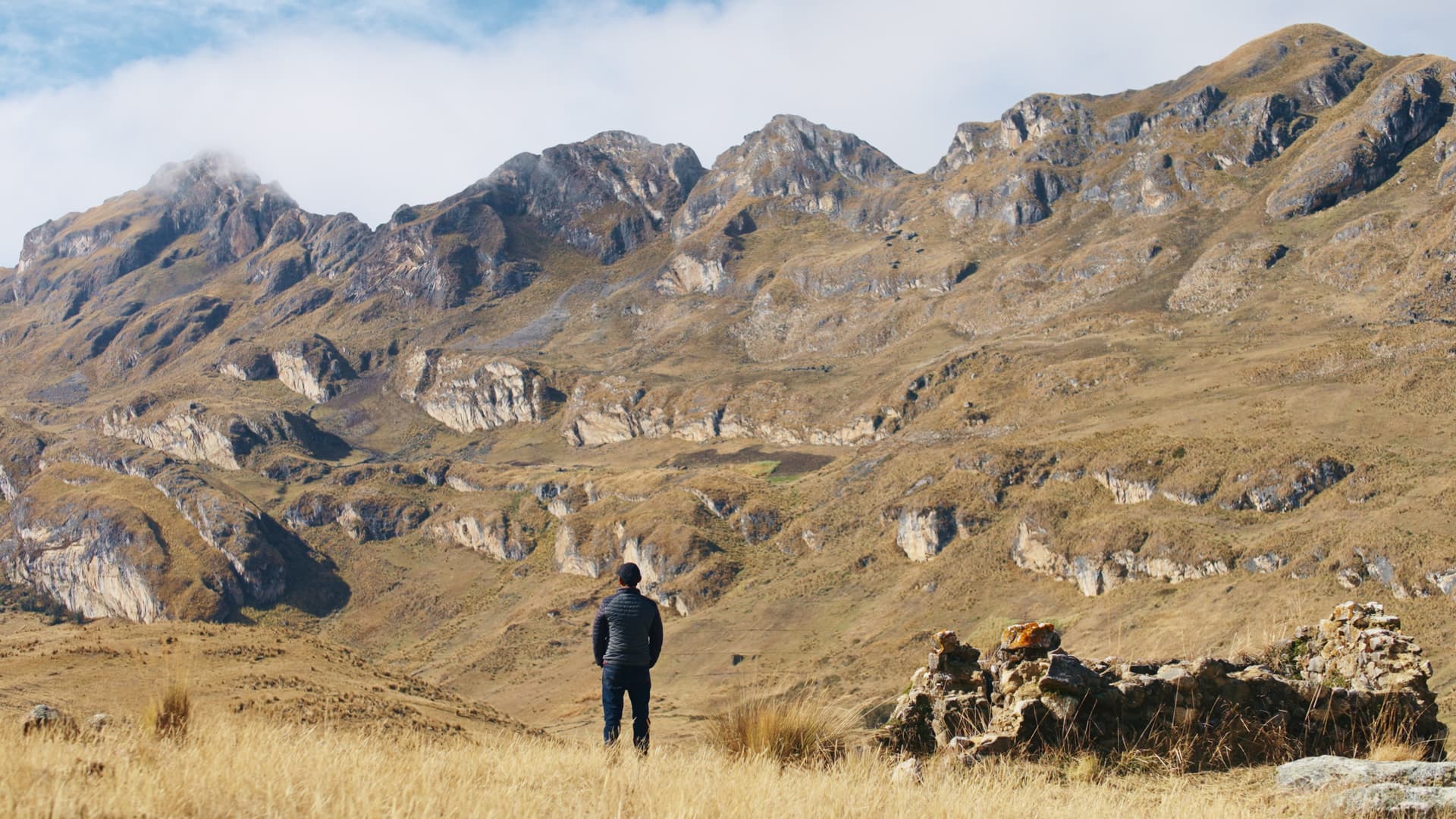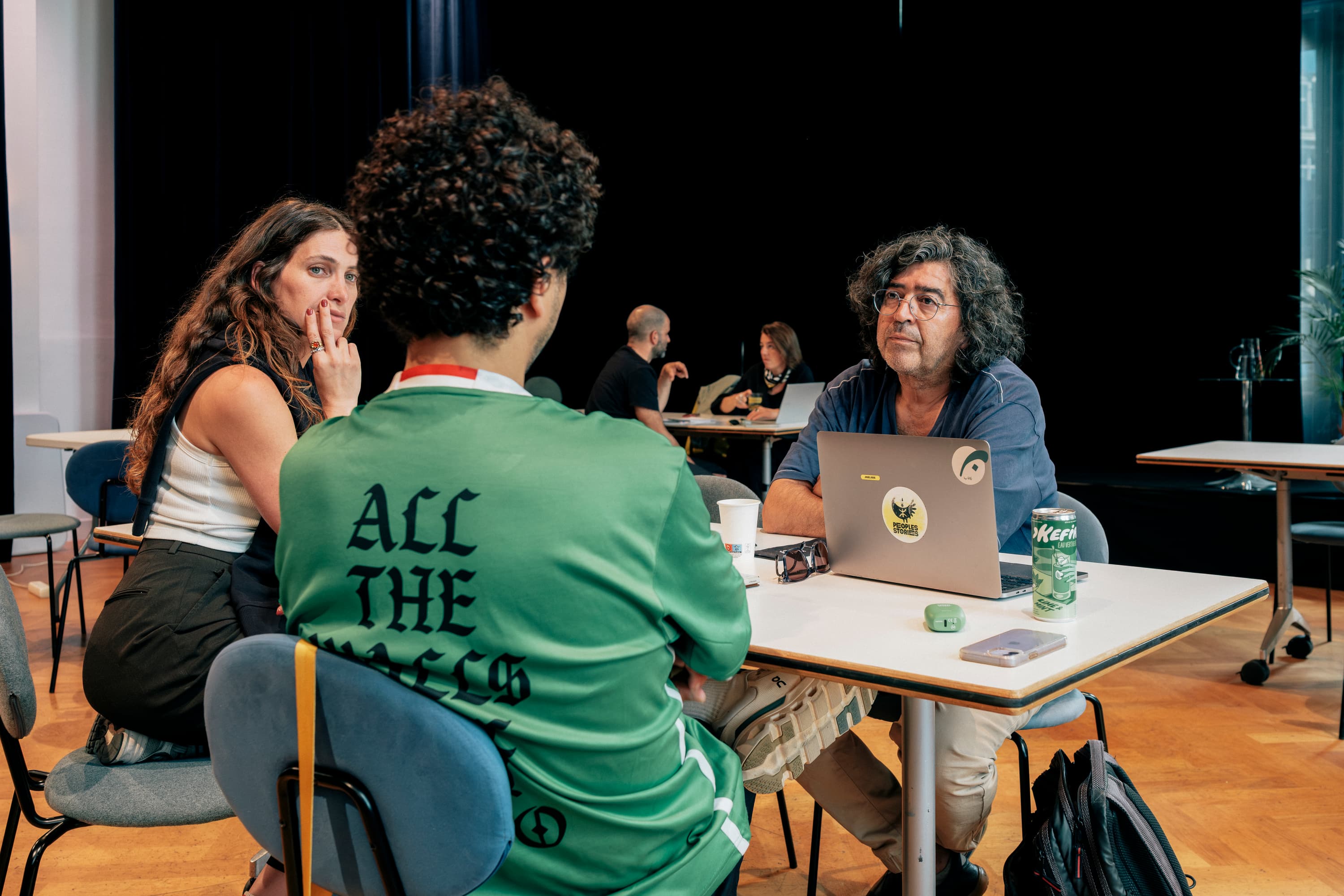IDFA Project Space
IDFA Project Space offers first- or second-time directors the opportunity to work on their project with highly esteemed filmmakers and film professionals who are willing to share their knowledge and experience.
Applications are closed.
Introduction
Carefully tailored to filmmakers’ individual needs, this in-depth talent development program offers participants the combined experience of project workshopping and longer-term organic support, all under the guidance of experienced mentors.
In 2026, IDFA Project Space takes place over four months, from June to September, with two online modules and one in-person week in Amsterdam. Filmmakers will have the chance to engage in a continuous process of growth within a program that flexibly adjusts to their specific needs with plenary sessions and tailored consultancies.
Program alumni have included the directors of acclaimed films such as All That Breathes, Apolonia, Apolonia, Do You Love Me, Writing Hawa, Taming the Garden, The Mother Of All Lies, and Where Are We Headed. Former tutors have included directors Pirjo Honkasalo, Aliona van der Horst, Kim Longinotto, Kumjana Novakova, Gianfranco Rosi and Audrius Stonys; editor and director Maya Daisy Hawke; editors Qutaiba Barhamji, Anne Fabini, Ollie Huddleston, Gladys Joujou, and Niels Pagh Andersen; producers Gema Juárez Allen and Bianca Oana, and film consultant Gitte Hansen.
Program
This is a project-driven program in which participants focus on strengthening the narrative or other creative aspects of their documentary film project. Project stages can vary from the late development or early production stage to rough cut stage.
The online component of the program, which takes place at the beginning and end of summer, consists of two elements: individual or group consultancy with industry experts; an inspirational program that includes online discussions with all participants. This online part of the program will partially be joined by a wider group of filmmakers as well.
During the summer, the in-person part of the program takes place in Amsterdam, where participants are matched with a tutor (an experienced director, producer, or editor) and spend an intensive week together working on their projects. Participants with a project in development or production work on the creative aspects in individual sessions. For participants with a project in the rough cut stage, tutors help refine their rough cut in the editing suite.
Development & Production
This section aims to strengthen film projects by working intensively on all story elements. Depending on the project phase, production issues can also be addressed.
Focus is on:
- Organizing a film idea or concept into a strong guiding narrative. Either defining characters and their stories or establishing and arranging themes for non-character-driven projects.
- Finding the right balance between different story lines and shaping underlying themes
- When character-driven, the choice of the main characters. How do they add to your story?
- Visualizing the story. How should the cinematography, sound design, and editing be used to strengthen the narrative?
Rough Cut
The Rough Cut section requires shooting to be near completion when applying, with a rough cut ready in time for the start of IDFA Project Space. The participants will work intensively with an experienced editor to refine the rough cut.
Focus is on:
- Defining the organizing principle of the film.
- Identifying characters and/or themes and refining the storylines.
- Fine-tuning the film’s rhythm and dramatic layers.
Eligibility
- IDFA Project Space is open to directors making their first or second feature documentary.
- Film school students are not eligible.
- Short films (under 60) and documentary series are not eligible.
- In line with IDFA’s mission, the focus is on creative documentary projects.
Filmmakers who are selected also have the opportunity to bring a sparring partner: a creative producer or a co-director. Filmmakers who are participating in the Rough Cut section must bring their editor. Participants are expected to have a working knowledge of English and to be available for the full duration of IDFA Project Space. IDFA’s talent development programs aim at a broad division of creative projects.
Application process
Applications are closed.
The following information must be included in the entry form:
- Logline: provide a summary of your story (max. 50 words).
- Synopsis of max. 400 words. Give an overview of your story, introducing the main characters (If applicable) and potential plot points.
- Project description of max. 1000 words. This should include background information, main protagonists, access to protagonists, and the anticipated story structure, and narrative line. If your project is not character-driven, what is your project concept, what are the themes you want to bring across, and how is it constructed?
- Visual approach of max. 1000 words. This should include your creative vision for the finished project—its visual look and feel. Explain your intended use of cinematic language or any artistic approach that supports the storytelling.
- Project timeline: a timeline from the project's current state to the anticipated completion date. Your timeline should cover both the creative and production processes. Max. 200 words.
- Project stage: Explain in detail what progress you will make between the moment of application and the start of the program in June (include important steps, meetings, or changes in the stage of production). This will give us a clear estimation of the project's suitability and the needs you will have during the program. Max. 200 words.
- A detailed biography and filmography of each of the participants (max. 500 words each).
- Your goals for attending IDFA Project Space: Include what you want to achieve during the program. Please share with honesty the challenges and obstacles you are facing, as well as the specific needs of your project. This can be either a written answer (max. 750 words) or a video (4 to 5 minutes).
If you are applying with a project for the Development & Production section:
- Original audiovisual material of the project. This can be a teaser or selected research material, preferably representative of the style. A photo presentation, dossier or material from other resources that serve merely as a stylistic example is NOT accepted.
- Please note that if you are selected, we will ask you to send us a written update on your progress in the time between submission and selection.
- Previous work of the director (audiovisual material—if available).
If you are applying with a project for the Rough Cut section:
- An edited sequence of the project or a selection of scenes (approx. 20 minutes).
- Please note that the rough cut should be ready no later than in June. If not, we cannot let you enter the program.
- Previous work of the director (visual material—if available).
Optional
- Letter of recommendations from experienced film professionals (film directors, producers, official funding bodies, film schools).
- Still(s) of your project.
If you have questions about the application email idfacademy@idfa.nl
Applications closed
The deadline for application was February 1. The form is closed.
Selection process
In assessing projects, a selection committee consisting of both internal and external industry experts will consider the project’s qualities, its fit with regards to the program timeline, and the motivation and goals of the participants.
All applications that are complete will be considered for selection. Within four to six weeks, filmmakers will be informed if their project is pre-selected. If a project is pre-selected, there might be a need to conduct an online interview. Filmmakers will be informed of this possible interview by mid-April. The results of the selection will be communicated at the end of April.
Projects submitted to IDFA Project Space cannot be withdrawn after selection. From the selected projects, we expect commitment and availability to attend all sessions of the program, both online and in person.
Program fee
The participation fee is €1,400 for one person (excluding 21% VAT) and €1,800 for two persons (excluding 21% VAT). Selected projects are asked to confirm participation within a week of notification. Upon confirmation applicants commit to the payment of the fee before May 30, 2026, and to attendance on the dates as indicated by IDFA Project Space.
The fee includes:
- Accommodation for international participants (including breakfast), (1 room, double or single use).
- Full tutoring.
- Editing facilities for Rough Cut projects.
- Social events organised during the program.
This fee does not cover:
- Travel expenses to Amsterdam.
- Food outside of social events.
We understand that finding finance to cover the costs of participation can be challenging. Therefore we advise to start looking into national, regional organisations and other funding options as soon as possible. Once selected we can provide the necessary letters to support such a request.
Program dates
- Online week: June 1 to 5
- Amsterdam week: June 29 to July 4
- Online week: September 1 to 4




